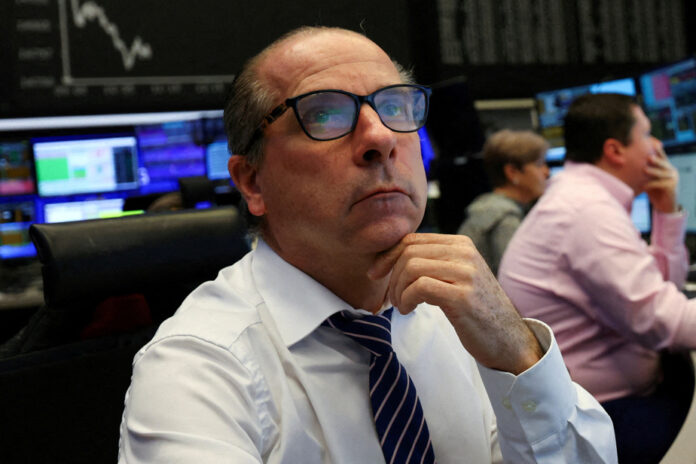(New York) The announcement of production cuts by several major oil-exporting countries sent oil prices skyrocketing on Monday, putting a damper on stocks that had risen sharply last week.
A barrel of Brent from the North Sea, the main European benchmark, for delivery in May, closed up 6.30%, at 84.93 dollars.
As for West Texas Intermediate (WTI), the most followed American variety, also due in May, gained 6.27%, to 80.42 dollars.
Eight major exporting countries, including Saudi Arabia, Iraq, Algeria, the Emirates, Oman and Kuwait, announced on Sunday a reduction in their production from May, presented as a “precautionary measure” for stabilize the market.
Russia has also announced that it will extend the cut in its crude oil production by 500,000 barrels per day until the end of the year.
“We had a risky event this weekend and it wasn’t the banks this time but OPEC,” summed up Karl Haeling of LBBW.
For Clémence de Rothiacob, manager at Richelieu Gestion, it was “a surprise because the market was expecting a status quo, there had already been a drop in production in October from OPEC and in February from on the part of Russia”.
The alliance took note of these “voluntary adjustments” to production on Monday, following a long-scheduled videoconference technical meeting (JMMC). In unison with its members, it assured that it was “a precautionary measure aimed at supporting the stability of the oil market”.
But for analysts, it is above all a question of garnering additional “revenues”, commented in a note Jorge Leon, of Rystad Energy.
Prices are indeed likely to be supported by “a market in deficit”, between “China’s economic reopening” and “oil production in the United States which will remain moderate”, according to Clémence de Rothiacob.
Brent had fallen to less than $73 a barrel in mid-March, its lowest level in two years, and was struggling to get back above $80. In April 2022, it was trading above $100 a barrel, boosted by the repercussions of the war in Ukraine.
This sudden rise barely dampened the momentum of the stock markets, after a good week. European markets ended mixed: London gained 0.54%, Milan 0.24%, Paris 0.32% but Frankfurt fell 0.31%.
On Wall Street, the Dow Jones rose 0.98% and the S
A further decline in manufacturing activity in the United States in March confirmed the presumptions of a slowing economy. This sentiment therefore watered down the impact of rising oil prices in the minds of investors. Because if demand drops soon due to the weakening of activity, the jump in crude prices could fizzle out.
On the bond market, rates fell in Europe and the United States after this publication: the French 10-year loan was trading at an interest rate of 2.74%, the German 10-year at 2.24%. and the US 10-year at 3.40% around 4 p.m. EST, down about 0.06 percentage points.
Shares of major oil suppliers rose with the surge: in London BP gained 4.48%, Shell 4.44%, in Paris TotalEnergies gained 5.89%, in Milan Eni climbed 4.23% and in New York ExxonMobil was up 5.89% and ConocoPhillips 9.29%.
Tesla shares fell 6.12% in New York despite an increase in the number of its vehicles delivered in the first quarter, which reached 422,875 units, but some analysts expected more.
The euro advanced 0.60% against the dollar, to 1.0905 dollars, and the pound 0.65% to 1.2417 dollars.
Around 4:45 p.m. EST, bitcoin was down 0.96% at $28,808.















